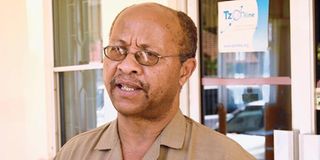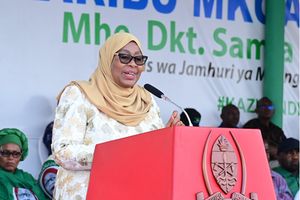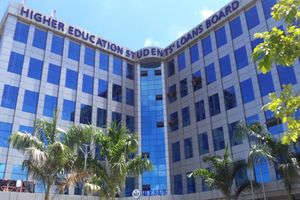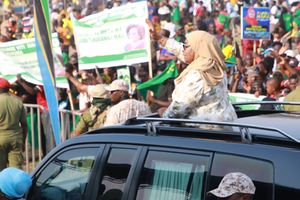Cause of economic hardships explained

Prof Semboja
What you need to know:
According to Pro Semboja, the real economic hardship experienced was a global phenomenon as most economies have been shaking.
Dar es Salaam. One of the crucial lessons Tanzanians must bring from last year is living within their means, failure of which they will find it difficult to navigate through 2017, economists and a political scientist have advised.
According to these experts, the much talked about hardships caused by measures within the government to restore discipline in its expenditure as well as the determination to robustly collect money from internal sources will continues throughout 2017 and Tanzanians must change to fit in the new system. “We must change. Some of us lacked discipline in financial matters because we got a lot of money through easy and unethical means. The hardship we are experiencing has nothing to do with President Magufuli’s making,” said Prof Haji Semboja of the University of Dar es Salaam.
According to him, the life hardship that majority people talk about today only stemmed from their failure to live within their means.
“You live with three people in your home doing nothing. The day you take them to the shamba they start complaining of life hardship. If that is the definition of hardship let it continue,” he said.
According to Pro Semboja, the real economic hardship experienced was a global phenomenon as most economies have been shaking.
He said in the last two decades, Tanzania has been building systems and institutions but failed to make them effective.
“Now we have a leader who is determined to make them effective, but most are finding it difficult to adjust accordingly,” he said.
He added: “The private sector and ordinary Tanzanians should not worry. We are moving away from a phase that heavily depended on foreign assistance for development to a system of self-reliance.”
He challenged the government to empower the youth so they will engage in activities taht will bring them development.
Regarding whether the business environment was predictable or not, Prof Semboja said: “Again this a product of regime change. Now we have a government that wants state-owned companies to efficiently and effectively compete in the market with private firms; the government, however, cannot run away from its responsibility of doing business with the private sector under the Public-Private-Partnership (PPP) model.
“There’s a conflict of interest here but strong regulators are needed to ensure that the market remains fair and competitive to all.”
He said the private sector was supposed to embrace innovation and new technologies and make prudent investments especially in sectors that will benefit them the most.
He pointed out that the key sectors remained agriculture, manufacturing, mining and tourism.
For his part, Tanzania Human Rights Defenders Coalition (THRDC) coordinator Onesmo Olengurumwa said 2016 was a year of fear and uncertainties, a situation he said, people cannot afford to have in 2017.
“It was a year in which freedoms, rights and liberties were curtailed. Laws aiming at cracking down on freedom of expression and press were passed, and we saw media outlets banned for political pressures,” he said.
He said if Tanzania wanted peace and progress, then it must respect the rights of the people.
Mr Olengurumwa argued that freedom of expression and thought were crucial requisites in upholding innovation in society.
For his part, Prof Gaudence Mpangala, a political scientist from the Ruaha Catholic University (Rucu) said there were serious democratic anomalies that should be addressed effectively in 2017.
“We accomplished many good things in 2016 and should be continued in 2017, these include cracking down on corruption and laziness in public organs and control wasteful expenditure of public funds. Although the clampdown on expenditure is linked with hurting businesses, especially the private sector, this needs to be addressed properly as well, we adopted liberal economic policies which demand for the government to fully support and partner with the private sector in bringing about to development.
He said 2016 was not a good year for democracy, citing the ban on political parties’ meetings.
“In 2017 these parties should be allowed to operate freely, hold their public rallies as they wish, that is their constitutional right,” he said.
“There’s one important thing that we need to understand and appreciate, that economic progress is inseparable with democracy. You can’t say that we need to lock up democracy in order to attain development, no, it doesn’t work like that,” he said.
Sikika, an NGO advocating for the right to better health services, executive director Irenei Kiria said there were a number of areas that need fixing in the health system.
According to him, on the top of the list was overhauling the drugs supply chain and recruiting more health workers.




